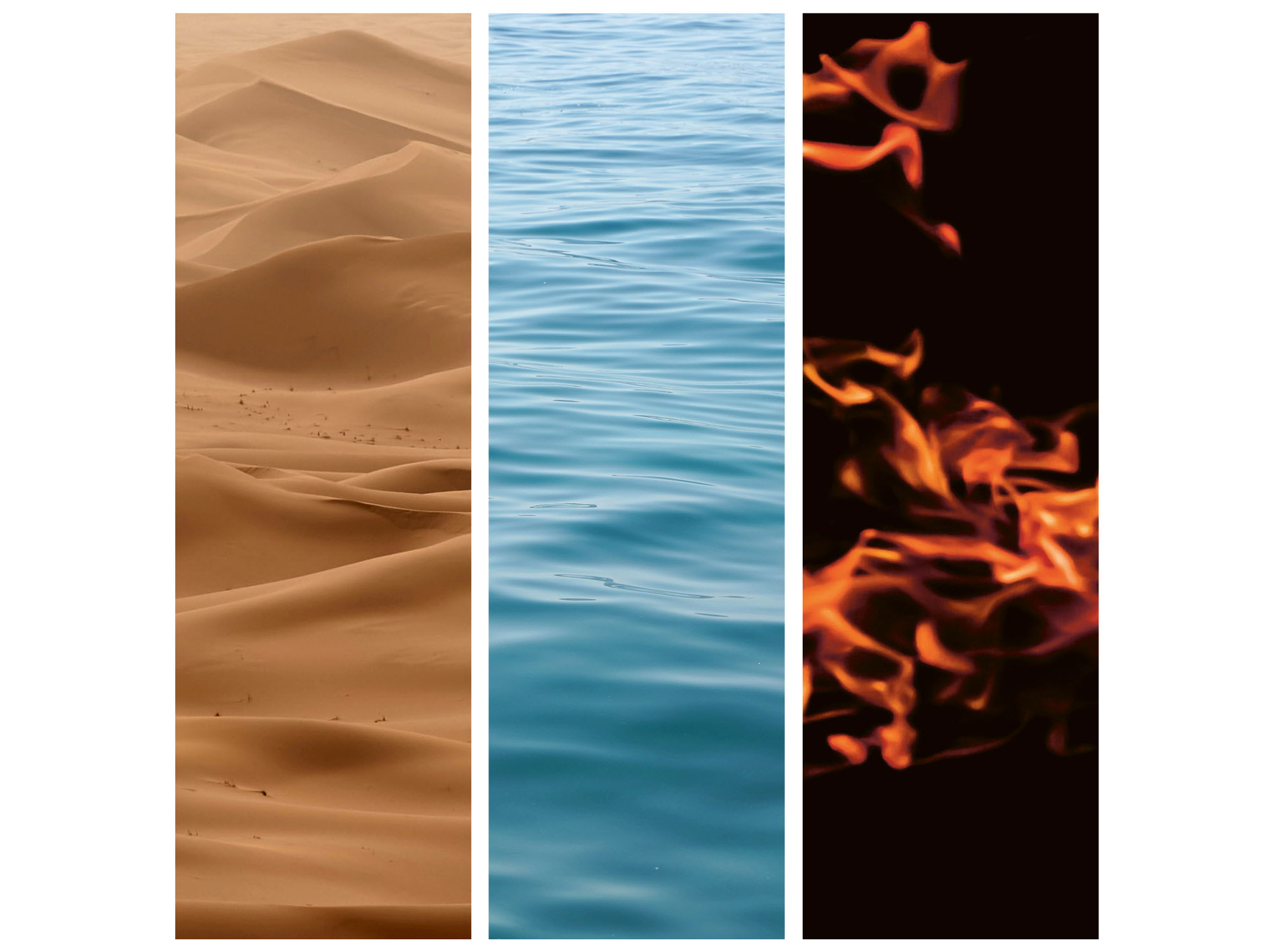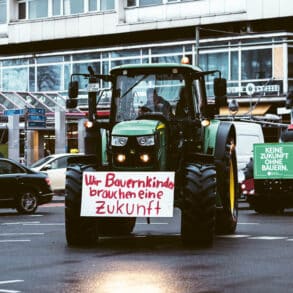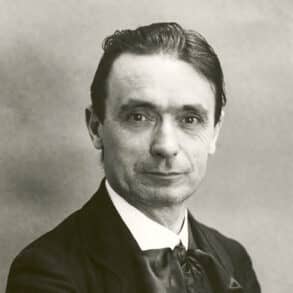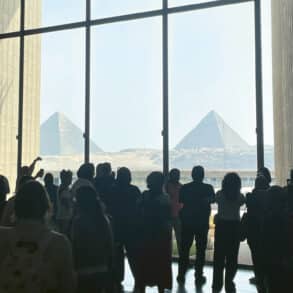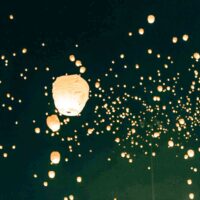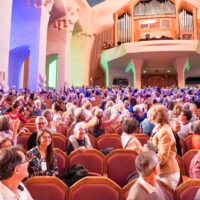Michael fights with the Dragon in the Revelation of John, like Apollo defeating Pythia, like the Mithras Sun God overcoming the Bull. This reflects the strength of these spirits.
In the west facades of the cathedrals, he carries a sword and scales in his hands, instruments of separation and comparison, of judgment – in the image of the sword, when the will is added, in the image of the scales, when the feeling comes to think. This is how wisdom comes into Michael’s strength. When he faces the dragon, he stands in the sun. So he is an angel of the sun – a spirit of goodness. Strength, wisdom, and kindness are his three virtues. To approach him is to strive for these virtues, to want to become strong, wise, and kind is to say yes, that these virtues seem to contradict each other. Michael does not look at his counterpart, not human or dragon, but rather he looks over them. That’s the key. If you look, you can see the direction. It’s less about being and more about becoming. His name ‹Michael› is also reminiscent of this, as the only archangel this name is a question: ‹Who is like God?› With a question is a way, a path that opens up where one sets out to become wise, strong, and kind. How does this work? How do you become wise, strong, and loving?
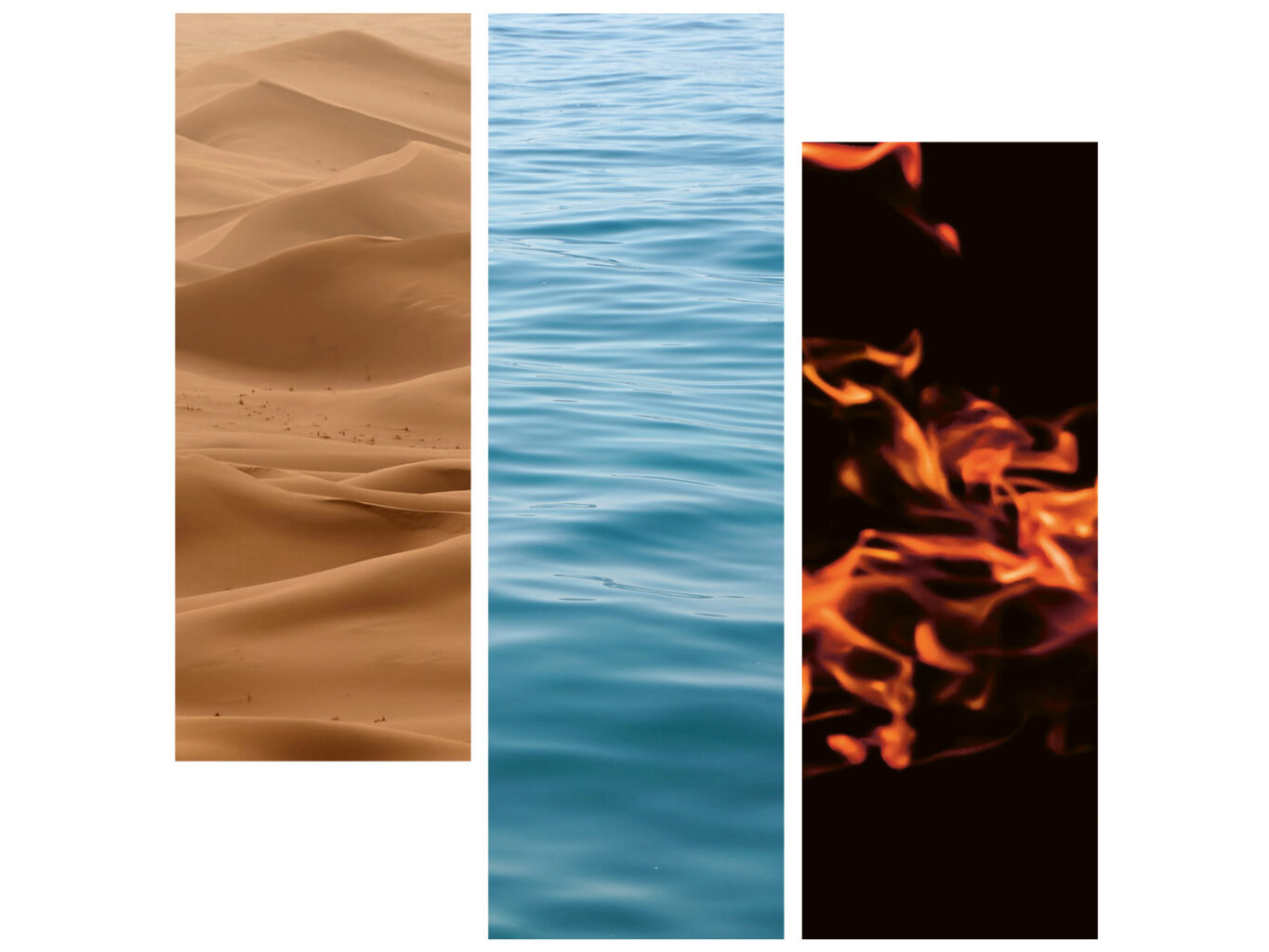
Into the Desert
The solar eclipse in Mongolia in 2008 took me through the Gobi Desert with a study tour group. What a picture when the travelers stood bent over the flower of an edelweiss in this wasteland, where nature is so sparse and the environment is so opposed to life. Such a small plant becomes a miracle. In the desert, the big becomes small, and the small big. ‹The Desert in You› is the title of the world traveler Reinhold Messner’s book about his Gobi hike. By this, he means that today everyone knows this emptiness, the desert, as an inner experience. It is no coincidence that all religions originate in the desert. Whether Buddha, Mohammed, or Jesus: in the desert, God showed himself there, in nothingness, in loneliness, where one practices goodness. Where nothing is ‹there›, you learn to give. The fact that 250,000 people make the pilgrimage to Compostela every year shows how great the longing for silence, for emptiness, is. A friend has taken such a hike through the French Alps, lonely through the deserted barren mountains. According to his summary, one does not come to special insights, but the soul purifies itself, and the senses increase.
Through the Fire
And how do you get strong? Michaelic strength now refers to a force that can transform, that does not unfold on the existing track but seeks new ways. A force that can transform, that produces transformation from within, grows through a transformation from the outside – this is the process of fire. American conservation activist Julia Hill, who spent two years on a 1,000-year-old cedar tree, braving storms and wind, writes: «All of nature had to hit me so that I could become who I was supposed to be. I am the proof of metamorphosis.» To free and ignite the will from its usual track, this ‹dying and becoming,› the way through the fire – this is the excellent school.
Onto the Sea
What a description: A couple goes swimming in the sea on the west side of the island of Iona in Scotland, and suddenly they are surrounded by fog. The woman finds her way back to the beach, but the man does not. Then she calls his name into the fog wall. Now he knows where to swim! But the relief is followed by horror. Because he hears his name from different directions. Sometimes he feels as if his wife’s call comes from above. He decides to listen to the call two or three more times and then find the direction within himself. That’s how he actually finds ground under his feet again. In ancient times, it was called a ‹trial by water›. To be so lost when one can determine the direction in oneself alone because there is no external indication anymore. The sea is the archetype here – you don’t know where you are, and you don’t know in which direction you’re moving. «They went through a deep forest,» the fairy tales say when someone goes through such a trial by water.
‹The Virtue of Disorientation› was the title of the authors Christoph Clermont and Johannes Goebel study of society twenty years ago, describing a condition still present in which tradition and bourgeois opinion determine neither the goal nor the next step, but everyone builds their own compass.
Onto the sea, through the fire, and into the desert – these are the three mythical hikes through which the soul creates wisdom, strength, and goodness for itself. Presumably, the important thing is that you bring out the virtues yourself.
There, in nothingness, in loneliness, one practices goodness. Where nothing is ‹there›, you learn to give.
See also ‹The three landscapes of Michael›, Lecture at the Rudolf-Steiner-Haus Stuttgart, on Youtube – Translation: Monika Werner

